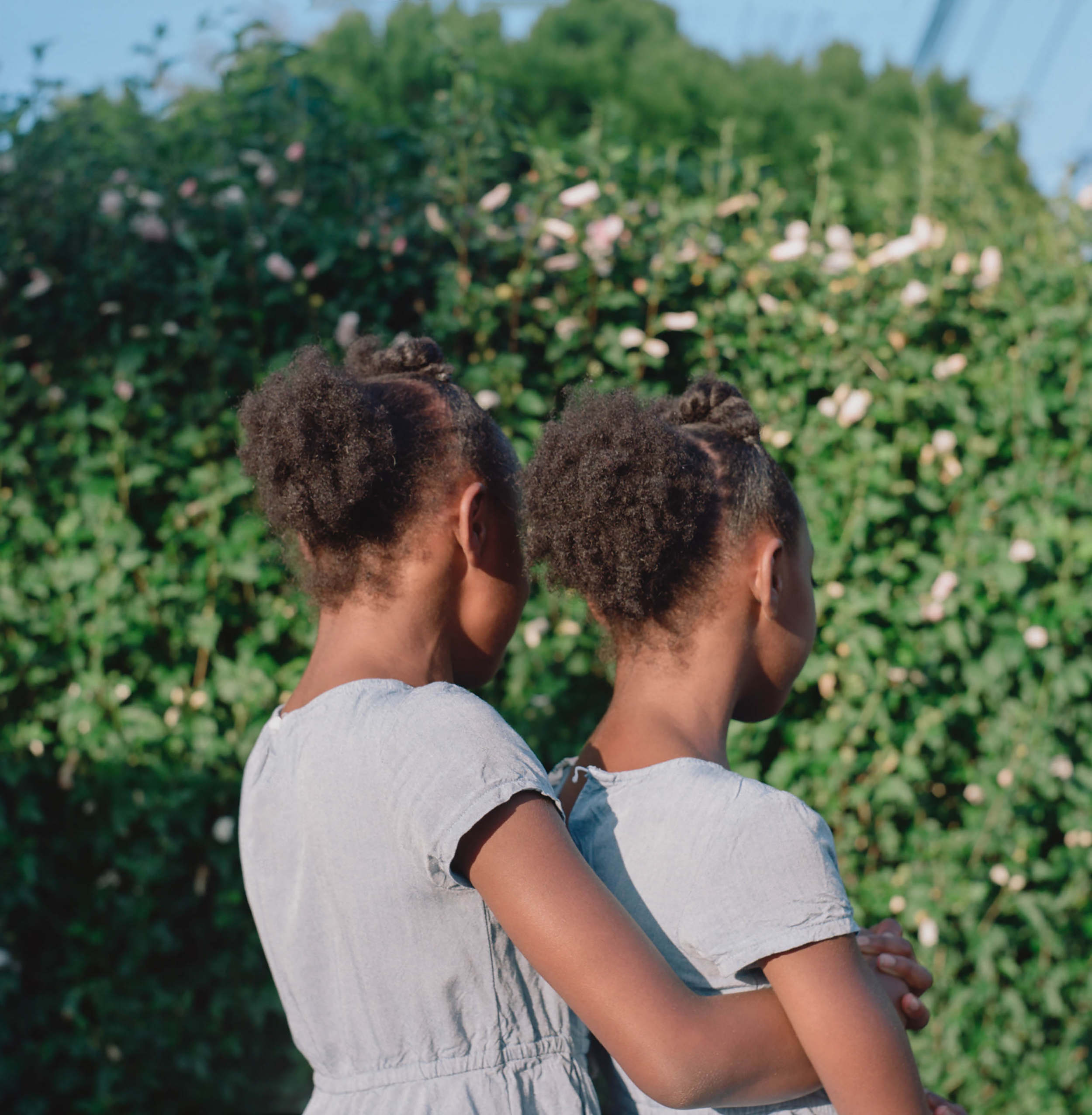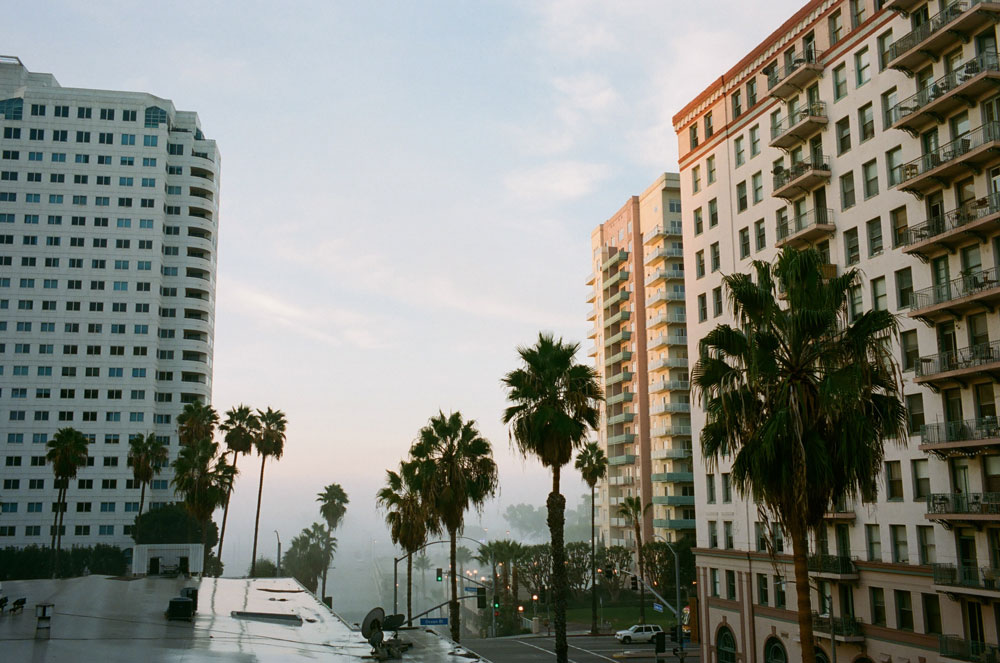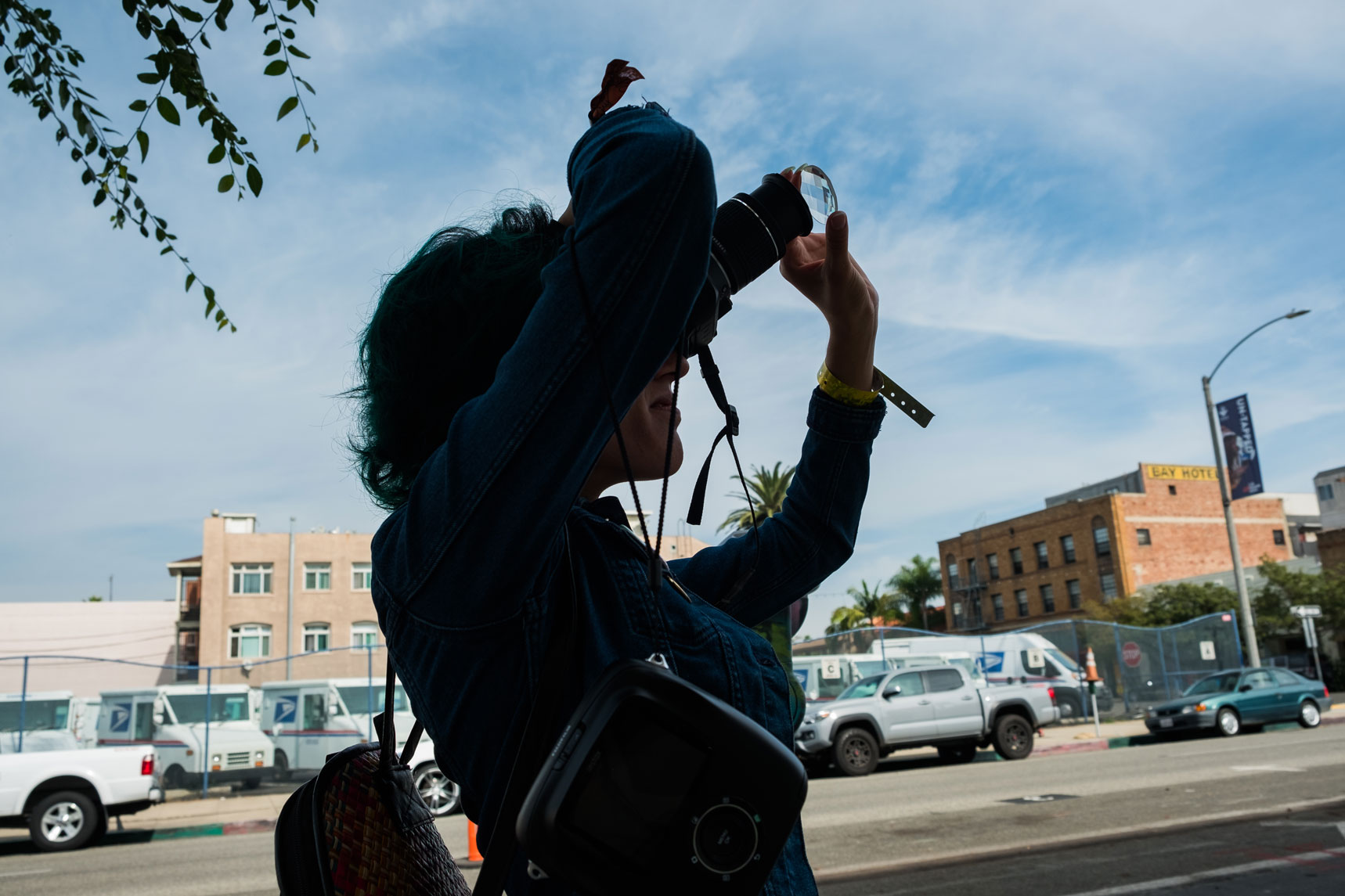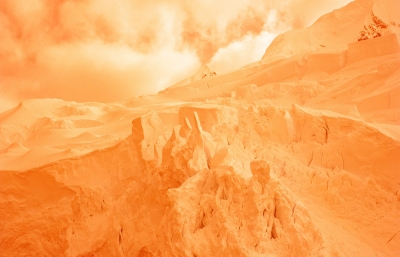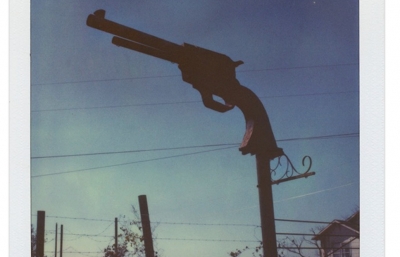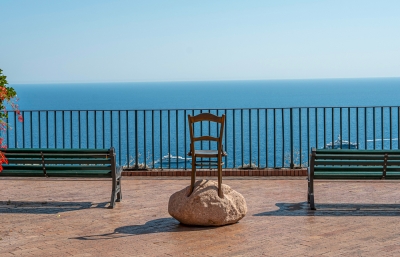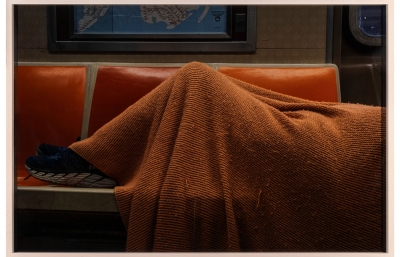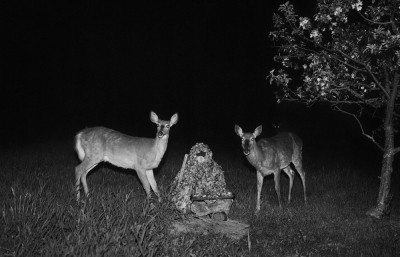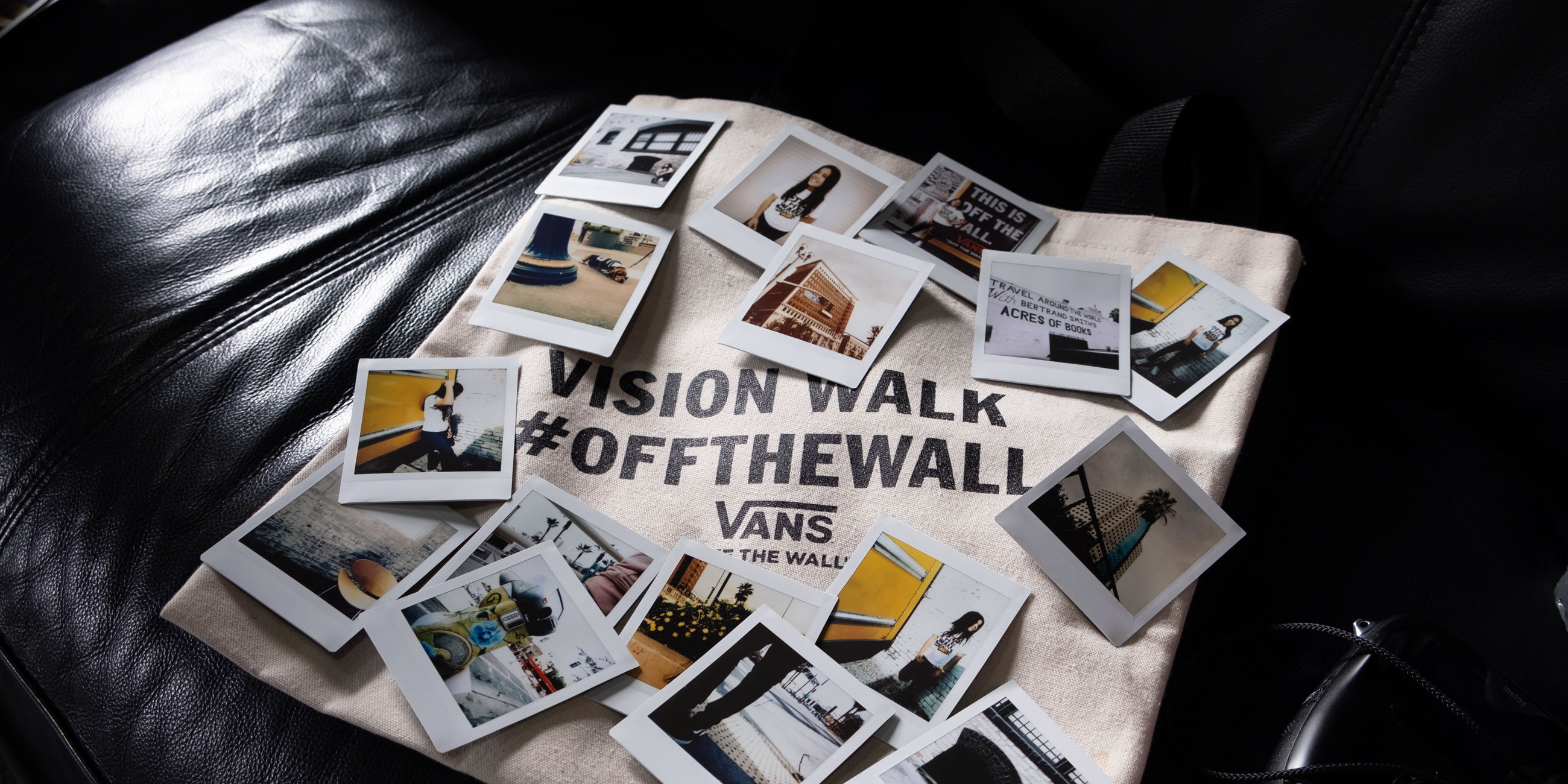
Vision Walk: ComplexCon
With Miranda Barnes
We recently partnered with Vans on a specially curated group of photo walks at ComplexCon with photographers Ray Barbee, Daniel Arnold, Miranda Barnes, and Brock Fetch. Each photographer brought their own unique styles and backgrounds to the walks, leading a group around the convention and Long Beach.
Miranda Barnes is a Caribbean-Anglo American photographer who received a BA in Humanities and Justice from John Jay College of Criminal Justice and currently lives and works in Brooklyn. Her series Doubles, on African American twins quickly gained recognition and she has since worked on projects for The New York Times, Leica, TIME, Vogue, Vice, and Broadly.
What were the first images you remember thinking about as something somebody thought about and created?
Miranda Barnes: I didn't really start photographing until 2014, but up until then I found that I was always watching Turner Classic Movies. I loved old films. One of my favorites was Kitty Foil with Ginger Rogers. I remember being so awestruck at the screen grabs, the stills from those movies and just feeling like, "This is just such a cool image," right? The way it was shot in the film... I was always thinking about it but didn't think that I could actually go that route. Its funny, I remember there were a couple of times in high school that I was feeling under the weather and my mom somehow let me come home from school. I would be like, "Yes! I can watch classic movies by myself." It was just my real moments of silence to myself, just to watch films.
What were you doing in 2014?
That was the year that Black Lives Matter sort of hit. I mean it was two or three years before then but it was Eric Garner and Mike Brown. I just remember feeling a sense of helplessness, for several reason. One, I'm a human being who feels empathy, right? But also, I had two younger brothers who are black. I remember just being so angry and confused. This sort of moment for me as an adult, a young adult, where it clicked that everything we've been told about our education is kind of a lie. A lot of how the Americans social system, caste system is set up around racism and still very much a problem and the stereotypes that can ultimately kill people in this country. I just remember being so angry about all of it and sad mostly. The only way for me to vent was to take photos. If I'm not mistaken I think it was Michael Brown's shooter’s trial. He was acquitted and there was an uproar and then a couple days later, Eric Garner was killed. I just remember those two weeks right before Thanksgiving and just being so tired. I remember going to the protest and that was my first moment where I just wanted to document the people that were the same angry as me. Up until then, I had only been dabbling in photography. It was nothing really serious until 2014.
There was a lot of imagery coming out of those protests.
I think I was definitely inspired by photos that were coming out, especially in Ferguson. Without a doubt, we were all just glued to Instagram and Twitter waiting to see what was happening down there. I remember thinking, “Wow, this is inspiring and incredibly frustrating.” So I think that I was partially inspired by the images that I had already seen from that summer, but also just having this sort of motivation that I have when it comes to my work, wanting to go out and do something whether it's a photo or criminal justice which is what I studied.
Sometimes people don't expect me to be a photographer and I just love sort of playing with that and getting shots that they probably wouldn't let someone else take."
Did you know you were going to study criminal justice at that point? Or was that kind of inspired by that as well?
I've always been fascinated with history, its just been my thing. I remember I wanted to go to art school but frankly, I couldn't afford it. I had to come to the terms with that so I ended up, I hate the word settling because I feel like it worked out for me for the better, but at that moment, being a young adult, I was settling. I didn't want to have to go to community college. I didn't want to have to go to a school that I couldn't do photography at. But I remember thinking, “Well, okay, I'll just do this and I'll do photography on the side. Not really thinking of it as lucrative, but just more about staying stimulated, because I loved it so much. I've always been fascinated with criminal justice. My mom's a social worker and I think that she gave me that fascination and bug for being on the right side of history.
You mentioned that it worked out for the better. Did going to school and learning about social justice informed your photography in a way it may not have had you been able to go to art school?
Yes, definitely. The technicalities that I think I lost by not going to art school can always be taught. What I was taught in my school was the history of America, which I think as a young adult who saw the rise of Black Lives Matter, you think you understand everything but you really don't. And that's not a bad thing, you just need to take a class on things and I took such fascinating classes in my school. Crime and Punishment in the U.S., The History of Lynching and Terrorism. Things that you think won't impact you and think won't give you a sense of how the world was set but does. I found that I was drawn to that. I don't do too much work that focuses on violence and terror, I tried to show a happier side, but I do think it's impacted me in a way that has allowed me to view, especially marginalized communities with sensitivity and empathy, because for so long our voices have gone underrepresented and are stereotyped for certain audiences.
What are you photographing on the side while in school?
At that point I had a retail job, I was a full-time student. I was probably always documenting, but nothing really came about until 2016, after taking a philosophy class. We were in a class and I was sitting next to this girl, and in walks her sister, and I was shocked that they were both twins. It kind of hit me, I remember connecting that with the philosophy about who we think can be twins, this sort of American notion of the white picket fence and having the two sets of twins. My grandmother was a twin. I thought maybe I should start doing a serious project on black female twins. I ended up finding a couple of twins I could photograph but it was kind of all over the place. I was traveling, I didn't really know what I was doing with it, but I knew I was working towards having sort of a more cohesive body of work versus just sort of snapshots that I've been taking before.
That's what John Jay College helped me with, the value of research, the value of going in one direction. Not to say that you can't go in all directions, but the value of working on one thing at a time. I didn't know what I was doing but ended up getting featured on Vice! It was weird because I felt like I had nothing else to show other than these photographs of twins. I thought, okay maybe I have to keep shooting and maybe I have to keep working on more things. It’s funny, I'm so grateful I have a degree but it was also such a deterrent in not being able to finish or start bodies of work because I was in school.
Where were you getting this idea that you needed a body of work, were you looking at other photographers?
Well, there's so many. I look to contemporary artists but I also have a fascination with the American South, partially I think because I'm not from there. Robert Frank’s The Americans was my first photo book. It’s so good. Before I went to John Jay I went to Queensborough Community College. I took a picture of my dog and two little brothers and won a photo contest there. They gave me this $25 Amazon gift card, I could buy anything I wanted so I bought The Americans. I was so excited. I remember being on the Q27 bus, heading home looking at the book I just got. It was just a moment of touching tangible work that I had never really been used to. I went to gallery shows, but that was the moment I realized the importance of photo books.
Other than looking at photographers like Robert Frank or even painters like Edward Hopper, I looked at black photographers like Andre Wagner. I just think about these photographers that I've plucked from different walks of my life and sort of converged. I'm obsessed, I look to Stephen Shore, I get inspired by scenic landscapes and old towns, the Midwest, and the South. I also am inspired by like Bruce Davidson, who spent so much time in New York, his photos on the subways.
Which part of the process do you enjoy more, going out and taking photos or seeing the images you’ve captured?
I think it's the going out because sometimes I find that the process of selecting and picking your favorites is too stressful for me. I also find that because of how I look and how tiny I am, that sometimes people don't expect me to be a photographer and I just love sort of playing with that and getting shots that they probably wouldn't let someone else take.
Do you have a supportive community of photographers around?
I think it's important, I really do. I definitely love my alone time, but definitely a lot of my photo girlfriends who, I feel like I can just bounce energy off of them. Really even some of my girlfriends who aren't even in the photo industry, that I'm just like; hey what do you think about this shot? Am I just crazy? Do I like it? Do we like it? What do you think? It's nice to have a collective of women photographers. Not just women photographers, but so many other photographers that I can just text and they'll answer me back and we can just have a healthy conversation.
Is photography more a social or solo act for you?
I'm still trying to balance that. I find that I'd like to say that is it a solo act but its not because the idea is that someone is letting me take a photo of them. They don't know what I'm going to really use it for. When I'm photographing on the streets, it's random people. They trust me enough to just let me take their photo. I find that that's incredibly fascinating to me, and it's for two reasons, this might be an open person and they are just not concerned, but also, I've found, especially from photographing marginalized communities, that they've never really had a good photo taken of them.
I sometimes find that people are shocked when I wanna take photos of them. I have this one photo that I took of a guy in Memphis, I'll never forget him just facing me and saying, “You wanna take a photo of me?” And he's like; is this for the New York Times? He just got so excited, I feel like, in that moment, it's less about the photo and more about the interaction that you're giving someone a platform, you're giving them a sense of nobility that they deserve and empathy that they've longed for but have never had the chance to have.
What kind of effect has photography had on you as a person?
It's become my life in a way. I never called myself a photographer. I wouldn't say it's given me a sense of purpose because I think I had other interests, but I would say that it has given me something that I have never felt more sure about. One way or another I'm going to find myself back in the photo world, whether that's taking photos or behind the scenes or curating, I don't know what it could be, but it's definitely one of those things.
It has changed me and I think it's also given me a way of shedding light on diversity, which is needed. I say this all the time, sometimes I'm not even taking the pictures for myself, I'm just taking pictures because I've had all these opportunities and I'm just trying to open the door for other people get through. I think that that's important.

